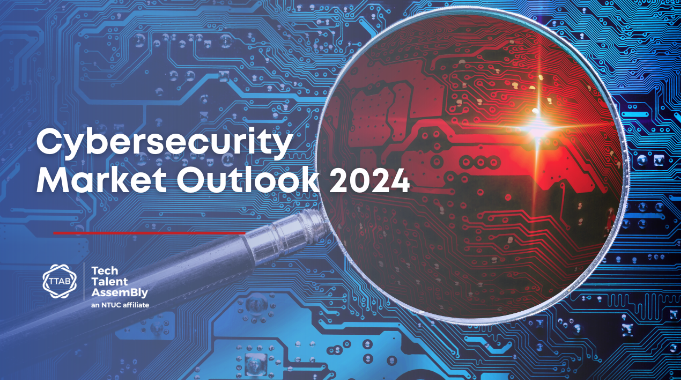Cybersecurity Market and Career Outlook 2024 | TTAB Publication Insights
The cybersecurity market is often heralded for being evergreen
Cybersecurity Market and Career Outlook 2024
The cybersecurity market is often heralded for being evergreen — an industry that is both stable and lucrative. In a business landscape rife with threats at every corner, cybersecurity is a function that companies cannot afford to go without, unless they want to risk handing their painstakingly built organisations over to hackers on a silver platter.
But for all its merits, the cybersecurity market is littered with noise. Generative AI and ever-evolving threat actors make it hard for business leaders to identify tools that are truly effective in fending off threats. For tech hopefuls who are looking to specialise in cybersecurity, understanding market trends and what lies ahead will be pivotal in shaping their career trajectory.
The cybersecurity market looking optimistic beyond 2024
Cashflow for reputable cybersecurity providers is unlikely to run dry in the foreseeable future, as spending on security and risk management is projected to increase from 14.3% in 2023 to reach $215 billion in 2024. Privacy is expected to remain a top priority as regulations surrounding personal data continue to evolve, especially given the rise of generative AI. Spending on data privacy and cloud security are therefore projected to attain record level growth rates in 2024.
Singapore’s cybersecurity market
Just as a rising tide lifts all ships, the local cybersecurity market is also expected to grow rapidly at a CAGR of 16.14%, nearly tripling from US$1.96 billion in 2023 to US$4.15 billion by 2028. Ransomware, online scams, and phishing activities have plagued Singapore’s digital landscape since 2021, and cybersecurity professionals who are capable of combating these threats will by extension be in high demand.
Cross-border agreements such as the MoU signed between Singapore and Australia in response to scam and spam communications, in particular, means that demand for cybersecurity within government roles will likely increase. On the private front, Singapore-based businesses are waking up to the importance of being resource-efficient by shifting data into the cloud. In other words, demand for cloud-based solutions and on-demand security will likely increase as well.
SMEs that will survive post-recession
Analysts also expect capital raised during the gold rush of 2021 to dry out following economic downturns in 2022/23. In particular, organisations that tried to survive the recession by making cuts are unlikely to make it compared to businesses that have successfully found their niche within the market and established successful pipelines to increase revenue. Given that there are also no guarantees in the coming years, organisations should also remain flexible enough to scale up and down whenever the need arises.
Recommended areas of cybersecurity specialisation in 2024
Overseas threats
Global conflicts have consistently made headlines over the past two years, but what seems to have gone under the radar is the cybersecurity component of international warfare. A group reportedly associated with Russia, for example, launched a massive cyber operation against Ukraine.
Cybersecurity experts working within government roles will therefore play a pivotal role in protecting vital infrastructure against threats situated thousands of miles away. These include schools, hospitals, as well as water and electricity infrastructure, all of which need to remain functional for society to keep running.
AI threats
AI is expected to greatly improve the efficiency of cybersecurity operations. At the same time, it's a double-edged sword that will also lead to stronger threats in the wrong hands. WormGPT and FraudGPT, for example, have shown capabilities to help individuals with non-technical backgrounds write malware.
In other words, increasing efficiency through AI or other means will be non-negotiable as threats evolve faster than ever before. Instead of replacing entry-level staff entirely, organisations that leverage AI to multiply the productivity of their existing workforce and help junior staff get up to speed faster will likely place themselves in an advantageous position over the next few years.
Authentication fraud
With individual wealth and public access services tied more closely to our identities than ever before, enterprises and cybersecurity teams need to look beyond traditional security measures such as multi-factor authentication (MFA) to safeguard their users.
Already, 87% of Singaporean businesses have already admitted to being victims of identity-based attacks, with experts believing the actual percentage to be much higher. This has resulted in adverse impacts such as loss of customers and revenue (47%), paid compliance fees (55%), failed audits (53%), and compromised services (53%). Cybersecurity professionals who are capable of plugging this gap will likely be in high demand.
Safeguard your career’s future by staying updated
The adage “Know thy enemy” rings true when it comes to guarding against cybersecurity threats, and also when making the right career move. Get connected with leading industry professionals and organisations by following TTAB on LinkedIn and Facebook, or meet us in person at the next TTAB Career Conversation.



